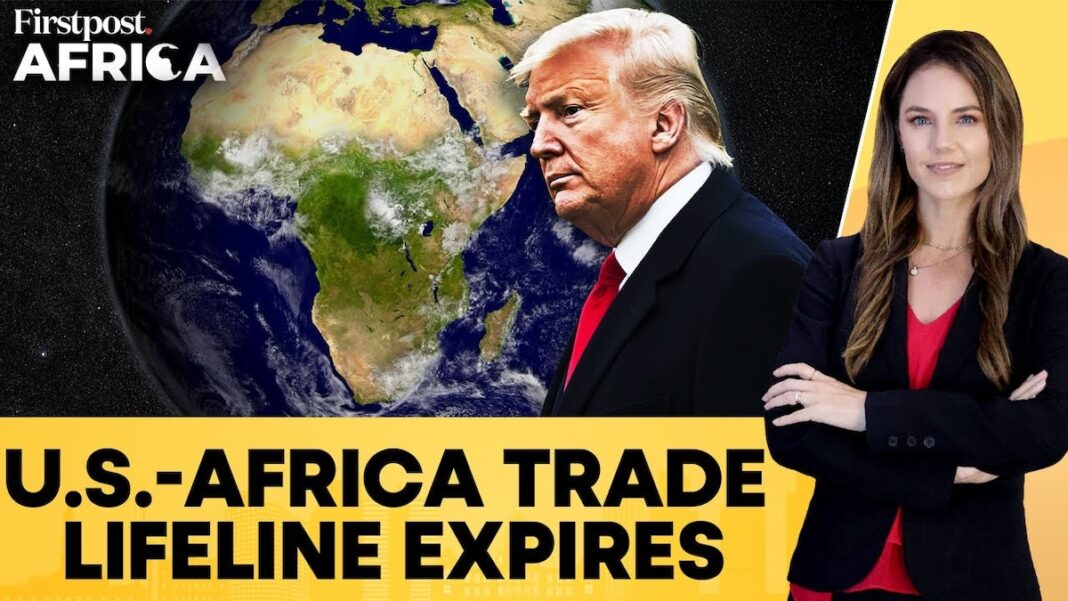The African Growth and Opportunity Act: A Vital Lifeline for Africa’s Economy
The African Growth and Opportunity Act (AGOA) has played a pivotal role in shaping the economic landscape of Africa over the past 25 years. This U.S. initiative, which expired on September 30, has provided an invaluable platform for duty-free access to American markets for goods produced in Africa. With at least 32 African countries benefiting from this act, its expiration raises significant concerns for the job sector and the broader economy across the continent.
The Impact of AGOA on African Exports
AGOA has been more than just a trade agreement; it has become a lifeline for many African nations. By allowing duty-free access to the U.S. market, AGOA has enabled countries to export a wide range of goods, from textiles to agricultural products, without the burden of tariffs. This has not only diversified Africa’s export offerings but also allowed multiple sectors to flourish. South Africa, for instance, has emerged as a dominant force, exporting substantial amounts of crude oil, motor vehicles, and jewellery.
The economic ripple effect of AGOA cannot be understated. It has facilitated job creation across various sectors, directly supporting millions of workers and their families. By allowing African products to compete on a more level playing field with other global economies, AGOA has actively encouraged local manufacturing and export capabilities.
Job Creation and Economic Growth
The expiration of AGOA leaves a significant void in job creation efforts. Prior to its expiration, businesses in Africa were gearing up for a continuation of benefits that would bolster their operations and workforce. Many companies have relied on AGOA to sustain and grow their business models, drawing in investment and creating jobs in industries that have flourished under its provisions.
For instance, the textile and clothing sectors saw considerable growth, employing millions of workers, especially women. As businesses grew in size and scope, they generated a trickle-down effect, improving living standards and boosting local economies. However, with the uncertainty following the expiration, workers fear job losses and reduced opportunities for new employment as businesses reassess their position in the global market.
Uncertainty and Future Prospects
In the wake of AGOA’s expiration, uncertainty looms large. U.S. officials have hinted at the possibility of a one-year extension, yet nothing has been confirmed. This ambiguity leaves both businesses and workers in a precarious position as they navigate an unpredictable economic landscape. The fear of losing access to U.S. markets could lead to reduced investments, layoffs, and even closures of businesses that depend heavily on AGOA benefits.
Moreover, the potential for a one-year extension raises its own set of questions. If granted, it could provide much-needed respite but may also create a cycle of instability as businesses would remain unsure about the future of their trade relations.
The Need for Strategic Adaptation
In response to the challenges posed by AGOA’s expiration, businesses are urged to adapt their strategies. Countries that have benefited from AGOA must seek new markets and trade agreements while enhancing local capacities. This could involve focusing on cultivating regional trade partnerships or enhancing the quality of products to appeal to consumers in other markets.
Moreover, businesses must explore innovation and technology to improve productivity and efficiency. By doing so, they can not only mitigate the impacts of AGOA’s expiration but also position themselves for future success regardless of external trade policies.
Conclusion
While the expiration of the African Growth and Opportunity Act brings undeniable challenges, it also serves as a call to action for African nations. The future may be uncertain, but with proactive strategies and adaptive measures, there is potential for renewed growth and prosperity. The lessons learned over the past 25 years of AGOA can pave the way for a resilient economic future for Africa, one that is not solely dependent on a single trade agreement.



